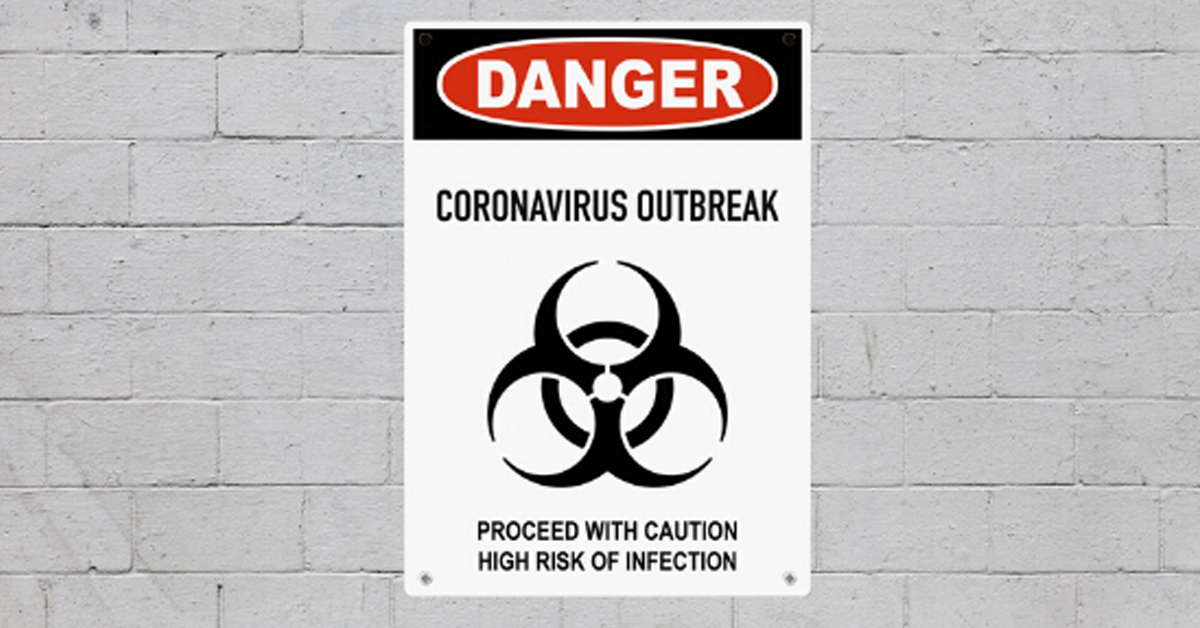On Dec. 31, 2019, an outbreak of novel coronavirus (2019-nCoV) was first reported from Wuhan, China. Since then, the World Health Organization (WHO), the Centers for Disease Control and Prevention (CDC), and just about every major news outlet has kept us up to date on the outbreak and its impact across the world.
On Jan. 30, 2020, the International Health Regulations Emergency Committee of the World Health Organization declared the coronavirus outbreak a “public health emergency of international concern.” Likewise, on Feb. 2, 2020, The New York Times reported that the “Wuhan coronavirus spreading from China is now likely to become a pandemic that circles the globe, according to many of the world’s leading infectious disease experts.” As of Feb. 4, 2020, 11 cases of the coronavirus have been confirmed in the U.S. in California, Arizona, Washington, Illinois, and Massachusetts, according to the CDC.
With the ongoing investigation and the severity of the coronavirus outbreak, it is imperative to understand what the coronavirus is, how to protect yourself, how to recognize its symptoms, and how the virus can be treated.
What is Coronavirus?
According to the WHO, coronaviruses (CoV) are a large family of viruses that cause illness ranging from the common cold to more severe diseases such as Middle East Respiratory Syndrome (MERS-CoV) and Severe Acute Respiratory Syndrome (SARS-CoV). More specifically, the 2019 novel coronavirus (2019-nCoV) is a virus identified as the cause of an outbreak of respiratory illness, which is a new strain that had not previously been identified in humans.
Coronaviruses are typically transmitted between animals and people. While most of the initial patients in Wuhan, China were linked to animals, a growing number of patients have reportedly not been exposed to animal markets. As the investigation is ongoing, it is unclear just how easily or sustainable coronavirus is spreading between people.
How to protect yourself from coronavirus
With most respiratory viruses, patients are thought to be most contagious when they are the sickest. However, with 2019-nCoV, the reports on how the virus is spreading vary. Consequently, it’s important to know how to protect yourself.
The best way to protect yourself is to avoid being exposed to the virus. Most importantly, the CDC recommends that travelers avoid all nonessential travel to China. Airports and local officials are enforcing new federal rules to help prevent the spread of the virus. However, the CDC does NOT recommend the use of facemasks to prevent the spread of 2019-nCoV.
As an individual, you should simply avoid close contact with anyone showing symptoms of infection and practice everyday preventive actions, such as:
- Regular handwashing
- Avoid touching your eyes, nose, and mouth with unwashed hands
- Stay home when you are sick
- Cover your cough or sneeze with a tissue, then throw the tissue in the trash
- Clean and disinfect frequently touched objects and surfaces using a regular household cleaning spray or wipe
- Thoroughly cook meat and eggs
Coronavirus symptoms
While it is important to protect yourself and others from coronavirus, it is just as important to be able to recognize the symptoms of coronavirus:
- Respiratory symptoms
- Fever
- Cough
- Shortness of breath
- Breathing difficulties
In confirmed cases, the symptoms reported have ranged from people with little to no symptoms to people being severely ill and dying. The CDC believes that symptoms of 2019-nCoV may appear in as few as two days or as long as 14 after exposure.
Coronavirus treatment
Unfortunately, there is no vaccine or specified antiviral treatment for 2019-nCoV infection. The CDC recommends that people infected with 2019-nCoV receive supportive care to help relieve symptoms. For severe cases, treatment may include specialized care to support vital organ functions.
If you think you may be infected with coronavirus, seek medical attention immediately. But, before visiting a doctor’s office or emergency room, call ahead to inform them of your symptoms.
Visit UAB Medical West for an evaluation
Call 205-996-WEST to schedule an appointment for an evaluation with a UAB Medical West provider. We are here to serve the communities of Hoover, Bessemer, McCalla, and Vance, and more!
